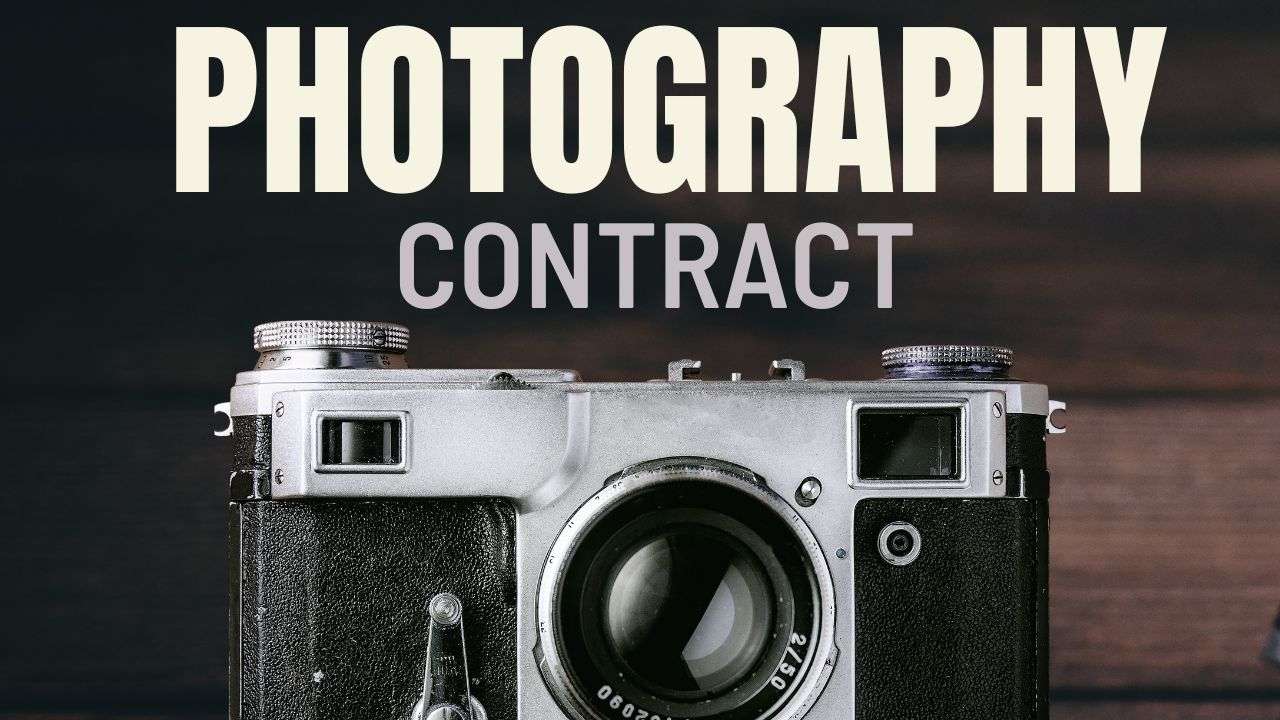Protecting IP Rights through a Photography Contract in Vietnam


Protecting IP Rights through a Photography Contract in Vietnam
In the vibrant and evolving landscape of photography in Vietnam, the significance of a well-structured photography contract in Vietnam cannot be overstated, especially when it comes to safeguarding intellectual property (IP) rights. A photography contract in Vietnam serves as a legal backbone, offering protection and clarity to both photographers and clients. This article aims to dissect the elements that constitute a successful photography contract in Vietnam, particularly focusing on the protection of IP rights.
Importance of a Photography Contract in Vietnam


At its core, a photography contract in Vietnam is more than just a formal agreement; it’s a tool that ensures mutual understanding and respect between the photographer and the client. In Vietnam, where the photography industry is booming, the need for such contracts has never been more pronounced. A robust photography contract in Vietnam addresses a myriad of aspects, from the scope of work to the delicate intricacies of IP rights, thereby laying a foundation for a successful professional relationship.
Essential Components of Photography Contracts in Vietnam
A successful photography contract in Vietnam should comprehensively cover all aspects of the engagement. This includes project details, deliverables, timelines, payment terms, cancellation policies, and, crucially, the terms related to IP rights. Clear stipulations about who holds the copyright upon project completion, usage rights, and licensing should be explicitly mentioned to avoid future disputes.
Protecting IP Rights in Photography Contracts
The crux of a photography contract in Vietnam, when it comes to IP rights, is to delineate clearly who owns the photographs post-completion and how they can be used. Typically, in Vietnam, photographers retain the copyright to their images. However, the contract should specify whether the client is obtaining the images for exclusive use, if there are any restrictions on the use of these images, and how credit should be given in public domains.
Licensing and Usage Rights
A well-crafted photography contract in Vietnam will also detail the licensing agreement. This section governs how the client can use the photographs, for what duration, and in what territories. This is particularly important for photographers in Vietnam, ensuring that their work is not used beyond the agreed terms, which could potentially dilute their IP rights.
Tailoring Contracts to Different Photography Niches
The nature of the photography contract in Vietnam may vary depending on the niche – be it commercial, event, or portrait photography. Each of these areas has unique considerations in terms of IP rights. For instance, commercial photography contracts in Vietnam often involve broader licensing terms compared to portrait sessions. Understanding these nuances is key to drafting a successful contract.
Negotiation Strategies
Negotiating a photography contract in Vietnam requires a balance between protecting one’s IP rights and meeting client expectations. Photographers should approach negotiations transparently, ready to explain the importance of IP rights and how they impact the contract terms.
Addressing Copyright Infringement
A comprehensive photography contract in Vietnam should also outline the course of action in case of copyright infringement in Vietnam. This part of the contract is crucial for photographers to ensure they have legal recourse if their IP rights are violated.
Adapting to Digital Challenges
In today’s digital age, a photography contract in Vietnam must also consider online usage and digital rights. With the widespread dissemination of images across digital platforms, photographers need to clearly define how their images can be used online and the limitations of such usage.
Role of Legal Counsel in Vietnam
For photographers in Vietnam, seeking legal counsel in Vietnam in drafting a photography contract can be invaluable. Legal experts can provide insights into the latest developments in IP law and ensure the contract is legally sound and enforceable.
Educating Clients about IP Rights
Part of the responsibility of using a photography contract in Vietnam is educating clients about IP rights. This not only protects the photographer but also helps clients understand the value and limitations of the creative work they are commissioning.
Future-Proofing Photography Contracts
As the industry evolves, so must the photography contract in Vietnam. Photographers should periodically review and update their contracts to reflect changes in law, market practices, and their own business models.
In conclusion, a well-crafted photography contract in Vietnam is indispensable for photographers, particularly for protecting their IP rights. It provides a framework that ensures clarity, fairness, and respect for both parties involved.
By addressing all critical aspects, from licensing to copyright infringement, and adapting to the digital landscape, a photography contract in Vietnam not only secures the photographer’s creative rights but also fosters a professional and mutually beneficial relationship with clients. As the photography industry in Vietnam continues to grow and evolve, these contracts will remain a cornerstone in the professional practice of photography.
About ANT Lawyers, a law firm in Vietnam
We help clients overcome cultural barriers and achieve their strategic and financial outcomes, while ensuring the best interest rate protection, risk mitigation and regulatory compliance. ANT lawyers has lawyers in Ho Chi Minh city, Hanoi, and Danang, and will help customers in doing business in Vietnam.


What Copyright Infringements in Vietnam?


How Can IPR Holder Protect Intellectual Property Rights?
How to Identify Counterfeit Goods and 4 Ways of Handling Counterfeit Goods in Vietnam?
Vietnam Trademark Registration. How to Proceed?
What Are Regulations of Radio and Television Services in Vietnam?
Ensuring Compliance in Corporate Governance: The Vital Role of Legal Counsel in Vietnam
How ANT Lawyers Could Help Your Business?
You could learn more about ANT Lawyers IP Practice or contact our IP attorneys in Vietnam for advice via email ant@antlawyers.vn or call our office at (+84) 24 730 86 529
Recent Posts
7 Essential Truths to Open an Indirect Investment Account in Vietnam and Grow with Confidence
Do you want to invest overseas into Vietnam? Do you want to open an indirect…
5 Crucial Facts About ESG Laws in Vietnam That Could Save Your Business and Reputation
The Business World Is Changing Fast Rules are shifting. Expectations are rising. Eyes are watching. …
7 Powerful Reasons Why ESG Compliance in Vietnam Will Win You Trust, Growth, and Global Clients
Trust matters. Today, more than ever. Across industries, many companies are now being asked. directly…
7 Bold Reasons Why Tokenization in Vietnam Could Transform Your Future
Change is coming. Quietly. Digitally. Rapidly. Let’s imagine the situation, which assets are no longer…
Vietnam P2P Lending: 5 Bold Reasons Why Decree 94/2025 Could Empower Millions or Backfire?
A New Financial Chapter Begins in Vietnam One person lends. Another borrows. It’s that simple.…
5 Essential Lessons from Risk Management in Digital Assets in Vietnam: Protecting Trust in a Digital World
Trust Is the Real Currency Money can be lost. Tokens can vanish. Platforms can crash.…


